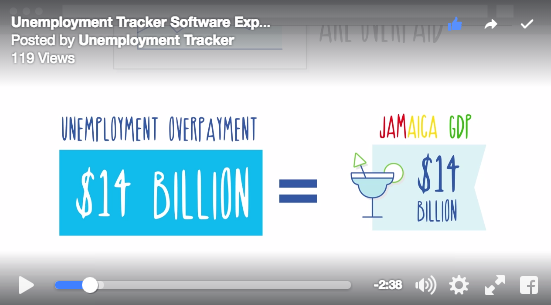It is extremely important to plan for an economic downturn, as many unexpected costs can arise. Without a set plan, it can be difficult for businesses to survive. In the last economic downturn, there were many companies unsuccessful at keeping costs down and, unfortunately, they went out of business. Your business might decrease and unexpected costs will certainly come up, but if you have a plan, you can get safely through. One cost to consider is the rise in unemployment costs.
The Cost of Unemployment
In the midst of an economic downturn, as a business owner, you might have no choice but to downsize your staff. Though you could be reducing payroll costs for your business, do keep in mind that your unemployment costs are going to rise drastically. Because of this turnover, more UI claims will be filed, which will lead to more payments coming out of your State UI Reserve Account (this is the checkbook account where taxes go in and payments to claimants come out). It is important to know that as a owner of your business, the more UI claims you generate, the more you are going to have to pay. For small businesses, this could be the difference in staying alive or having to close.
Higher Costs Lead to Higher Taxes
Increased UI claims can lead to increased UI tax rates, which in turn leads to a higher cost per employee. You could even end up paying thousands of dollars in taxes per employee each year. Now you’ll be paying for an employee without getting the work in return. Often, it is the right decision to downsize, but what many employers do not account for is the extra cost of laying employees off.
It is important to always be prepared for UI claims and any payment associated with them. Be sure you are hiring the right people, and if you happen to make a mistake, be aware that as an employer, you are responsible for UI costs after 30 days of employment. If you think there is a problem with an employee from the start, consider laying them off or firing them quickly to avoid costs. Even if you think you are hiring the right people, the economy could unfortunately take a turn for the worse and you could be stuck with no choice but to have layoffs. If you have a set strategy in place, you will be able to avoid unnecessary costs and you will be prepared for the costs you must pay.
.png?width=864&height=165&name=uet-2logos%20(1).png)






